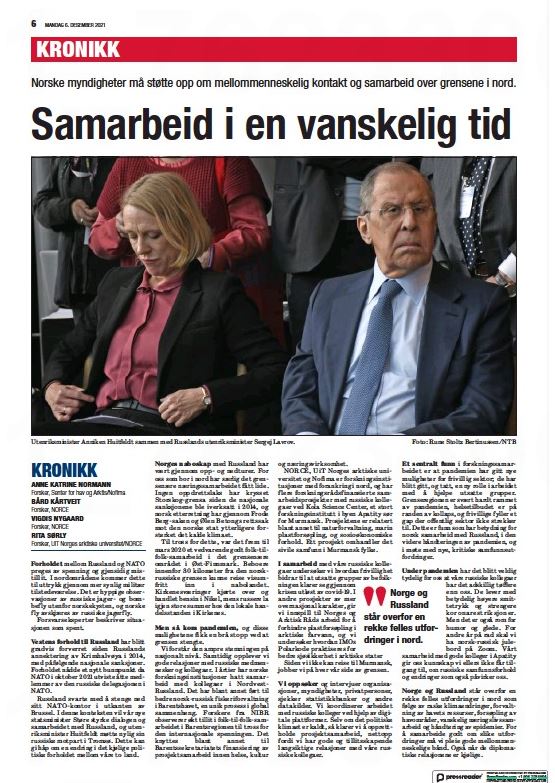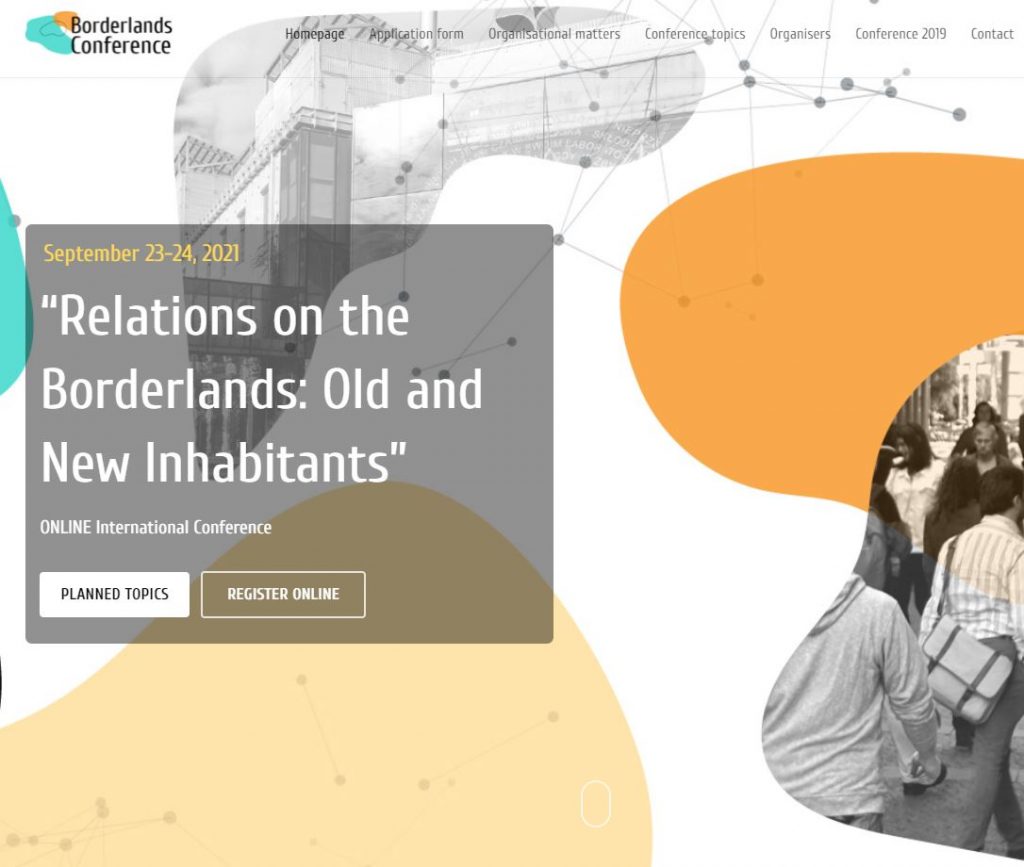Collaboration in difficult times
RE:Barents researchers (Bård Kårtveit and Vigdis Nygaard at NORCE) write about the importance of keeping up collaboration with Russian partners – in Dagsavisen 6 December 2021.

RE:Barents researchers (Bård Kårtveit and Vigdis Nygaard at NORCE) write about the importance of keeping up collaboration with Russian partners – in Dagsavisen 6 December 2021.

The RE:Barents project was presented by Aadne Aasland for the Joint Working Group on Health and Related Social Issues at their 33rd (digital) Meeting, 12 November 2021

NIBR, OsloMet – in collaboration with NORCE Research and Luzin Institute for Economic Studies – has been selected to conduct an evaluation of the Grant scheme for Norwegian-Russian health collaboration in the 2016 – 2019 period for the Norwegian Health and Care Ministry. The evaluation is scheduled to be ready by May 2022. The team consists of Aadne Aasland (project leader), Jørn Holm-Hansen, Bård Kårtveit, Ludmila Ivanova, Larisa Riabova and Svetlana Britvina, all participants in the RE:Barents project.
On 23 September 2021 Jørn Holm-Hansen (NIBR) presented the paper «Cross-border cooperation between Russian and Norwegian grassroot organizations: To what extent is it affected by changes in the geopolitical atmosphere?» written together with Aadne Aasland (NIBR) and Elena Dybtsyna (Nord University) at the conference «Relations in the Borderlands: Old and New Inhabitants» in Białystok, Poland.
Abstract: What impact do the changes in the geopolitical environment have on grassroot cross-border cooperation within the Barents Euro-Arctic Region? The Barents Secretariat’s grant programme is funded by the Norwegian Ministry of Foreign Affairs (MFA) in line with the overall aims of building trust and people-to-people cooperation in the Russian and Norwegian regions forming part of the Barents Euro-Arctic Region. The programme’s thematic fields are culture and sports, education and competence, business and entrepreneurship, media and information, civil society, environmental protection, indigenous peoples, and children and youth.
Based on two evaluations of the grant programme carried out by this paper’s authors (2008 and 2021) the paper analyses the development over time of the cross-border cooperation in Russia’s Northwesternmost and Norway’s Northernmost regions. The context in which the programme is carried out today differs in significant ways from those in 2007-8. The 2014 events in Ukraine have led to a new geopolitical environment that poses a challenge to the idea of cross-border trust and people-to-people cooperation. Moreover, internal political developments in Russia have led to more centralized power structures and control, among others of civil society. This paper explores the effects of these changes on Russian-Norwegian cross-border cooperation.
